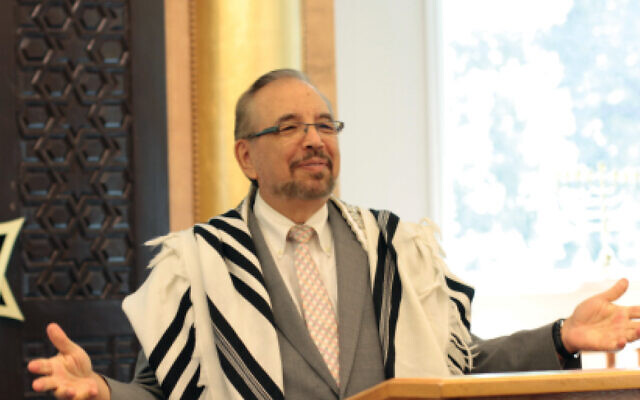Rabbi Mark Kunis
Rabbi Mark Kunis shares his Passover thoughts with you.
Why do we eat matzah on Passover? Long ago when the Jews were leaving Egypt, there wasn’t enough time to bake bread because they were so busy rushing, they put the dough on their backs which they later baked into unleavened cakes.
Really? God rains upon the Egyptians 10 of the coolest plagues ever. Couldn’t He have arranged a late check out??? Why did we have to run out like fugitives? And yet, this technical difficulty of not having the time to bake bread becomes the symbol of our freedom? It’s because matzah is a crucial life lesson.
Egypt, in Hebrew, is Mitzrayim which means, “narrow places.” We all have our narrow places — strained relationships, frustrations and disappointments. And now, as we endure our coronavirus in solitary confinement, we understand the fear the Israelites lived with on that first night of Passover with the angel of death hovering just outside.
But as the Israelites understood in Egypt, we must understand that God has our backs. He will never abandon us. In fact, it is possible that we emerge from our current isolation stronger and better. You see, growth moments are always wrapped in challenge, difficulty and discomfort.
There are times in our lives when we get stuck. There are things we know we should do, but don’t get to. We should make the call. We should be healthier. We should learn more. We should be more patient and kind and generous and tolerant — but it’s too hard. We come up with the brilliant response: “Later! I’ll do it, later.” Well, with our coronavirus predicament, later has arrived. Life has now given us the time we never had.
That’s the difference between matzah and chametz. You mix flour and water to make matzah, but if you wait too long — more than 18 minutes before it finishes baking — it becomes spoiled, leavened, chametz. Chametz is later and matzah is now. Perhaps this is why matzah is the symbol of Passover — the holiday of our freedom. Matzah reminds us that the difference between a life of mediocrity or meaning — of Egypt or the Promised Land — is really determined by one thing: our reaction to challenge, our willingness to either delay or engage in the opportunities in front of us. Our plague of COVID-19 has given us the opportunity to revisit many things in our lives. What will we make of it? Chametz or matzah? I pray this Passover, that God will give us all the wisdom to choose wisely.
Rabbi Mark Kunis is the spiritual leader of Shaarei Shamayim.




comments